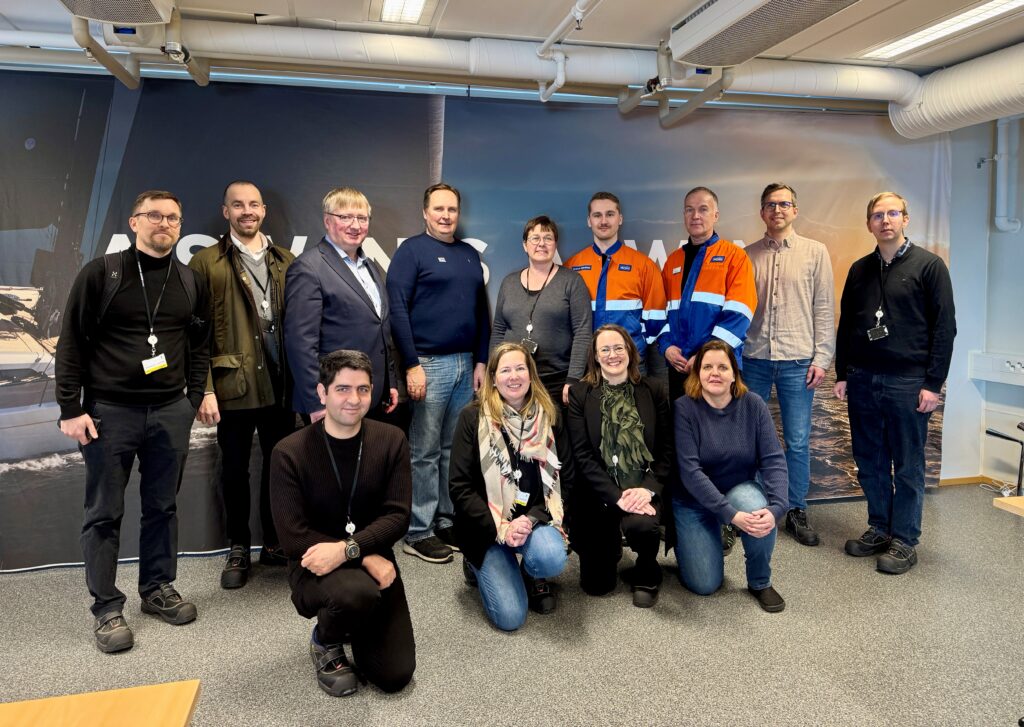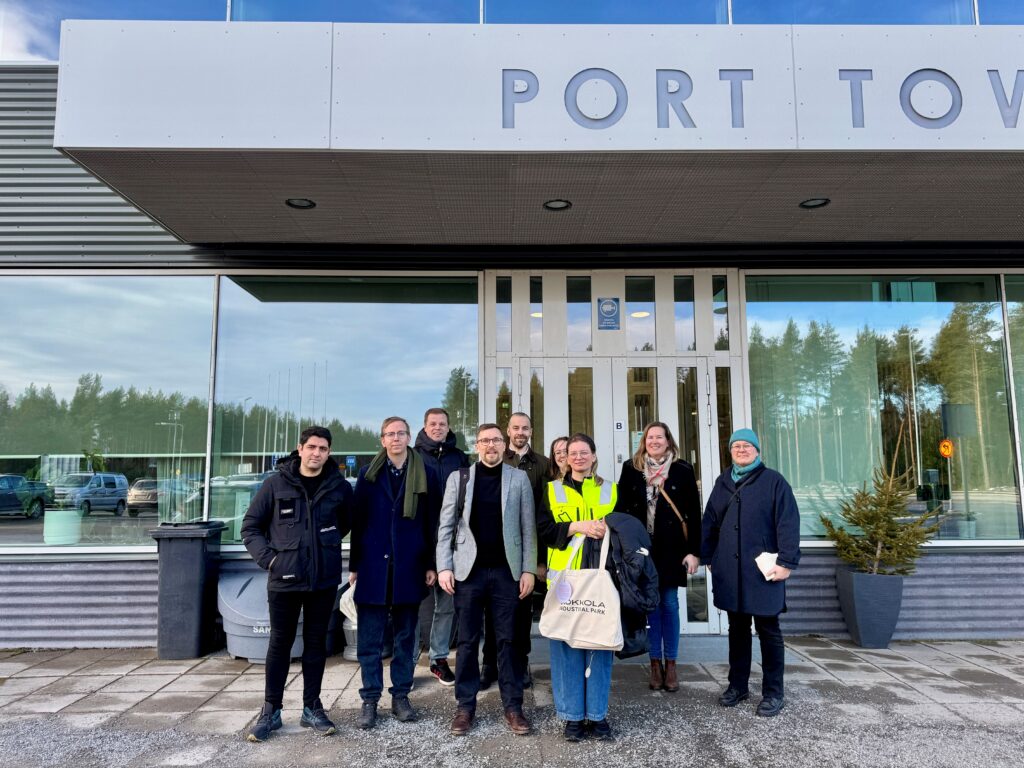In early March, Alholmen Industrial Park (AIP) hosted a benchmarking visit from the Department of Production Economics and Circular Economy at Turun Yliopisto‘s Faculty of Technology, through the Alholmen Circular Economy Platform (ACEP) project.
Turun Yliopisto, together with the city of Salo, leads the project “Localization of Circular Economy in Finland: Towards Innovations in Industrial Symbiosis in Southwest Finland.” The project aims to clarify the potential for establishing new industrial symbioses, focusing on the Louna Puisto industrial park in Salo. The goal is to design the world’s most innovative circular economy industrial park in Salo, based on research in innovation management and circular economy, in collaboration with industrial and service companies as well as local public organizations.
Under the leadership of ACEP project manager Åsa Björkman and project manager Pia Holkkola-Löf from Concordia, Professor Miia Martinsuo (Production Economics, Innovation and Project Management) and Associate Professor Oskar Karlström (Circular Economy, Industrial Engineering and Management) visited AIP. Postdoctoral researcher Saeed Morsali and doctoral students Joona Virtanen and Anders Lindgren also participated.
The morning began with a presentation on the industrial symbiosis at AIP. From the observation room at the top of UPM’s soda boiler, guests had an impressive view of the area and a clear picture of the various industries and service companies. Björn Åkerlund, CEO of Alholmens Kraft, talked about the cooperation between industries and how the material flow works. At Walki, the visitors were received by Henrik Byggmästar (Extrusion/Printing Developer) and Robert Björklind (Technical Service and Development Manager), who talked about the company’s operations, gave a company tour, and showed the development and innovation department as well as the laboratory facilities.
AIP actors are active in learning from each other
The visit continued at Nautor Swan, where HR Director Magnus Ljung showed the production facilities and talked about the manufacturing process for luxury sailboats. During lunch, the guests from Turun Yliopisto presented their project in more detail and highlighted the questions they seek to answer regarding industrial symbiosis, material flows, and circular economy. Fortunately, several of AIP’s board members and team members participated, contributing important perspectives and input to the research team. We could conclude (once again) that it is beneficial for actors within the AIP area to take the opportunity to learn from each other’s operations and expand their network.

New ideas and important networks
We all realized that the questions asked were beneficial for both parties. They forced us to think critically and identify knowledge gaps. AIP had the opportunity to reflect on its processes and identify areas for improvement. By sharing experiences and insights, we not only contribute to academic research but also gain new ideas and perspectives. Collaboration with academic institutions creates important networks that benefit both parties. We look forward to the results of the project in Salo and Louna Puisto.

Industrial symbiosis is a business model based on collaboration where companies effectively utilize each other’s by-products, technology, expertise, or services. One company’s by-product or waste becomes a profitable resource, leading to savings and reducing environmental impact for the other. https://www.sitra.fi/en/topics/industrial-symbiosis/
